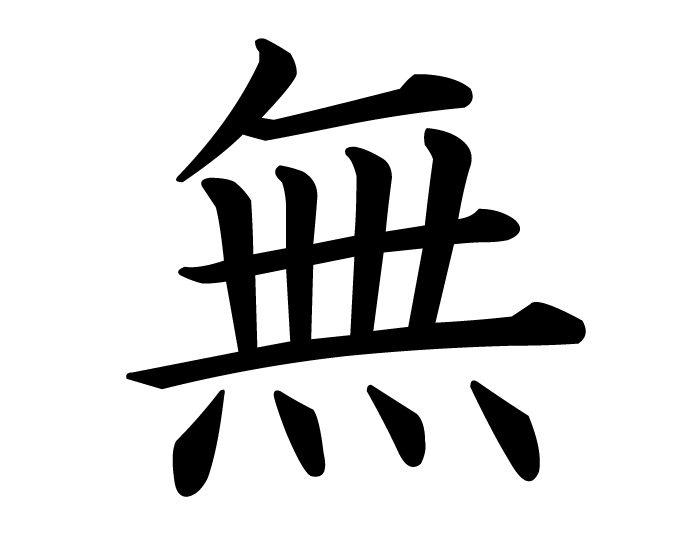Wu
The character 無 (Wu (Chinese); Mu (Japanese)) connotes the meaning of ‘not’, ‘nothing’, or ‘nothingness’.
Our interest here is used by the Chan/Zen schools of Buddhism, where it indicates a kind of intuitional knowledge
- Pure human awareness, prior to experience or knowledge (no experience)
Unasking the Question
‘Wu’ can also be used to answer questions by rejecting the dualistic implications of the question, or to indicate that the question is fundamentally flawed:
- Have you stopped beating your wife?
- Even replying yes to this question implies that you have done so before.
- 無 (wu!) may be the only respectable answer.
Wu can ‘un-ask the question’ to indicate that no answer exists in the terms provided. This is used in Zen where categorical thinking is a delusion, as ‘yes’ and ‘no’ are both correct and incorrect . Categories put bounds on reality freezing it, arbitrarily separating the object from the world around it, and hiding its impermanence.
Inaction in Action: Wu Wei
This character is also used in the name for the foundational Taoist concept of ‘inaction’.
Wu wei (Chinese: 無爲; pinyin: wú wéi) is a concept literally meaning “non-exertion”, “inaction”, or “effortless action”, describing a state of non-conflicting personal harmony, free-flowing spontaneity and savoir faire.
(Distilled from the Wikipedia)
In Chinese, a character is sometimes borrowed to write another concept with almost the same pronunciation. The character wu 無 originally meant “dance”, but was later co-opted to write the homonym: wu which means “not”.

